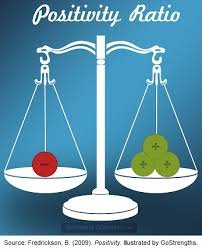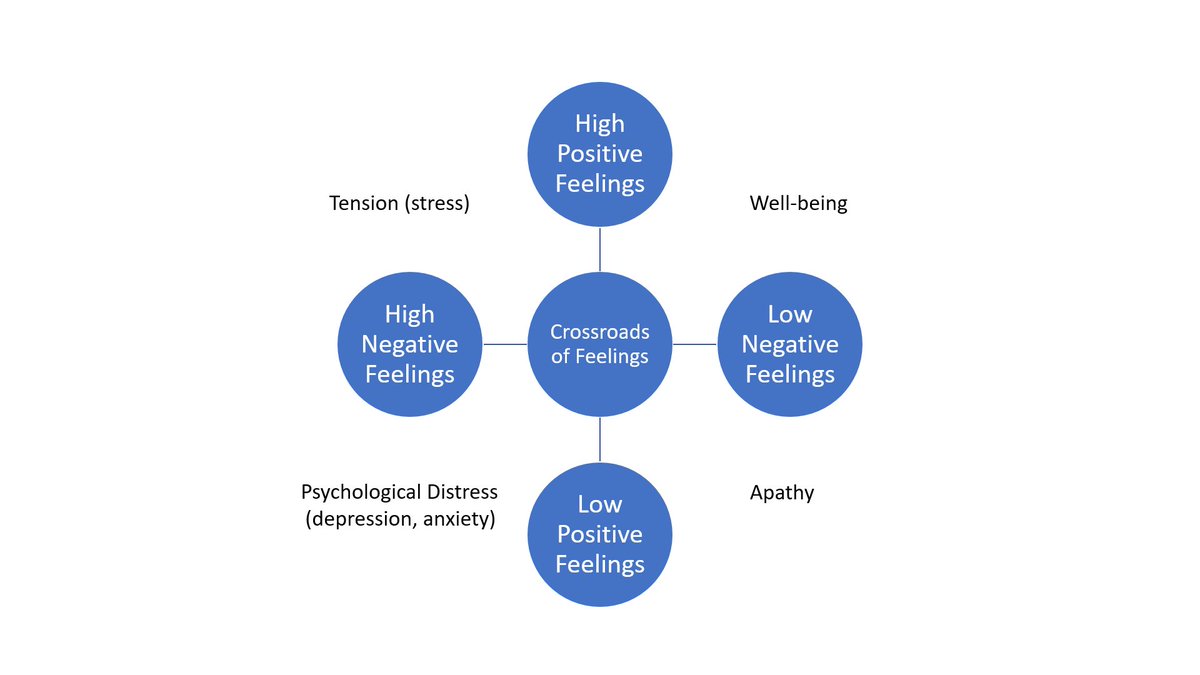#FeelingsAndMoods
#Christophe_Andre
#FeelingsAndMoods
#Christophe_Andre
#FeelingsAndMoods
#Christophe_Andre
#Christophe_Andre
Another characteristic of feelings and moods is their remanence. Remanence is the partial persistence of a phenomenon once its cause has disappeared. Essentially, moods outlive the situations which justified or triggered them.
#Christophe_Andre
Events are put into perspective, my feelings remind me, sometimes dramatically, what this event means to me.
With precise attention to details and subtle awareness of the slightest shifts of mind, writers had understood and described everything long before psychiatrists came along.Freud said, ‘Everywhere I go, I find a poet has been there before me’.
Our feelings and moods are profoundly influenced by the link with time: the past (nostalgia, melancholy, shame, guilt), the present (pride, satisfaction, boredom), the future (anxiety, worry, confidence…).
Feelings put events into perspective, my feelings remind me, sometimes dramatically, what this event means to me
Feelings enhance our understanding of life: they are the result of the way we perceive the world, even down to the micro-events. Feelings are triggered by minutest detail.
Small events in life do not generate powerful emotions, but they trigger a range of feelings.
Witnessing a small incident – a child crying, a beggar - can suddenly plunge you into melancholy. From an outside point of view, such scenes can have no impact on us. Yet, inside us, they linger on. And who knows where they might take us.
Is there a name for feeling simultaneously
*Disappointed* (for losing a job) and
*Relieved* (of its responsibilities)?
Childhood, at that period of our lives we are less inclined to filter everything that happens to us by a process of rationalization, less apt to analyse the experiences life brings. For many years they are not fully conscious of their feelings
Our feelings are reflected in our physical states: we feel heavy-hearted when we are sad and light and energetic when we are in a good mood. Feelings and moods affect the body, and influenced by it. Any form of physical activity tends to favor positive moods.
Anxiety (I’m getting old)
Surprise (Already?)
Sadness (Pity to lose youth)
Regret (wasted so many moments)
Tenderness (Everything simpler, clearer, calmer)
Curiosity (What will happen)
Calm (I don’t have to compete, don’t care anymore)
Guilt:
When we refuse to help, we cause offence, even pain. We wonder if our refusal means we were acting in defiance of our values. An uncomfortable feeling, we feel sad because we caused suffering, and jeopardized a relationship which was important to us.
Guilt (Cont'd):
We are disappointed in ourselves.
Then comes the feeling of irritation at not being able to be a little more selfish. We feel annoyed with the person who came and asked us for help. Everything was peaceful until then
Guilt (Cont'd):
An overwhelming sense of fatigue at having to make all these choices.
A little flicker of anxiety too: what if one day I found myself in a position where I had to ask for help and everyone refused?
Guilt (Cont'd):
You start to weary of turning all these ideas over and over in your head. You decide to move on. Not so fast! Do you really think your feelings can evaporate simply because you decided they should ?
Guilt (Cont'd):
Guilt, plays an important role, forcing us to re-examine certain decisions which may turn out to have had a negative effect on other people. Too little guilt can make us egocentric but too much guilt can make us unhealthily sensitive.
Guilt (Cont'd):
Does it make us better people ? I incline to think so, though not everyone would Agree. Theodore Dresier, the American writer and militant anti-capitalist opinion, ‘Conscience never stops anyone committing a sin. It merely stops them enjoying it’
A personal sense of success or failure will not necessarily lead to pleasant or unpleasant feelings. Everything is restructured according to other elements of our personality,past: This is why there are bitter successes and contented failures.
The negativity bias is the phenomena by which humans give more psychological weight to bad experiences than a good ones. In fact, some researchers assert that negative emotions have an impact close to 3x stronger than positive emotions

Negativity Bias
In the interests of survival, we are cerebrally ‘wired’ so our attention is drawn more rapidly, more forcibly, and for a longer time to situations likely to provoke negative emotions and reactions.
Negativity Bias (Cont'd)
Our brains were fashioned to make us focus on the sources of any potential problems and detect dangers even before understanding and analyzing them.
Negativity Bias (Cont'd)
The way our cerebral machinery is constituted condemns us to depression and anxiety, and this is an advantage when we are faced with dangerous or even uncertain situations.
Negativity Bias (Cont'd)
But then once the danger has passed, we need to work on bringing back pleasanter moods. Fortunately, our brains also have the capacity to analyze (not detect but analyze to understand) positive information more rapidly than negative ones
Negativity Bias (Cont'd)
If being human implies being primed to be over attentive to the negative (and the moods associated with it), we have nevertheless been given a second chance.
Negativity Bias (Cont'd)
As in the story of the Sleeping Beauty when, after the wicked fairy’s curse (‘You will prick your finger on a spindle and fall asleep for a hundred years’),
Negativity Bias (Cont'd)
there is still one more fairy to come. She cannot undo the evil spell (just as our efforts cannot undo our natural tendencies) but she can cast a counter-spell (‘Yes indeed, but a Prince Charming will come to your rescue’)
Negativity Bias (Cont'd)
And in our own story, the mood fairy, says: ‘All right, little human, your emotions will indeed naturally lead you to feel fear and sadness, but you will be saved by your feelings (provided you work hard on them)!
Russian psychologist Bluma Zeigarnik, asked children to carry out small tasks, then allowed them to finish half these activities. afterwards, the children were asked to remember everything they had done. The unfinished tasks were cited twice as often as others
Positive feelings are rooted either in a physical sense of well-being (physical activity or good sleep) or in enjoyable social interaction
Impact
Negative moods, ‘sad passions’ as the philosopher Spinoza called them, cause people to give in to tempting stimuli, buying goods they don’t need, consuming substances which promise instant improvement.
Impact (Cont'd)
The depressive state can lead to a range of unhealthy pleasures. But beware of the self-punishment that follows, because we know these things are ‘bad’ we feel guilt at having drunk, smoked, eaten, thrown money down the drain.
Impact (Cont'd)
Those close to us sometimes reproach us for these excesses too. This is the danger of negative moods, they end up locking us in a vicious cycle from which. Conversely, positive moods can help us escape.
Impact (Cont'd)
Positive moods enable us to have better self-control. This is why depressive tendencies are often associated with failed attempts at healthy ‘behavior patterns’ (alcohol consumption, smoking, lacking exercise).
Impact (Cont'd)
This explains why people on a diet or trying to give up alcohol or tobacco are vulnerable to fluctuations. Many lapses can be blamed on a fit of the blues.
Impact (Cont'd)
People in a positive mood are more receptive to criticism. And to think that so many bosses favor a bad atmosphere in the belief that too much enjoyment might encourage slack performance!
Impact (Cont'd)
Positive moods make us more persuasive and help us memorize useful information more accurately. This explains why it is important to create a positive atmosphere in education or in the work place.
Impact (Cont'd)
Be aware that with their tendency to rapid generalization, positive moods can also be misleading. We often take our feelings to be a source of information.
Impact (Cont'd)
Negative moods also have the same generalizing influence on our judgements. When volunteers are presented with an existential issue, they tend to perceive it to be more serious and preoccupying when they are tired.
Impact (Cont'd)
When we are aware of this, we are less likely to fall into the ‘trap’
if we are told that the fine weather or our small satisfaction over small successes is influencing our existential satisfaction, our reaction is to start judging in a more detached manner. We have the choice to influence our feelings by using discernment.
Two Dimensional Model
Positive and Negative moods do not cancel each other out. The link between positive and negative moods is not a one-dimensional one.
Two Dimensional Model (Cont'd)
An increase in negative feelings does not necessarily prevent us from feeling positive ones, inversely, an increase in positive feelings does not always eliminate negative ones.
Two Dimensional Model (Cont'd)
Certain Moods, such as nostalgia or sadness, can be mixed.
Our feelings and moods operate on a more two-dimensional register.

Two Dimensional Model (Cont'd)
This means it is common to find oneself in a state combining both positive and negative dimensions of our feelings. For example, the tension associated with stress can be both stimulating and exhausting.
Two Dimensional Model (Cont'd)
The absence of negative feelings does not necessarily indicate the presence of positive ones. Curbing your negative feelings when someone says ‘don’t cry’ does not signal the return of positive moods.
Money has more impact on limiting negative feelings. It helps to reduce the likelihood of stress and material uncertainty, when the car or heating boiler breaks down, we do not need to worry about being able to afford the repairs.
Positive and negative feelings and moods are therefore relatively independent. However, in the zones of extreme activity (in the context of emotions rather than feelings), too much stress over too long a period, gradually blunts the capacity to feel pleasure.
Two Dimensional Model (Cont'd)
Whereas sadness (a mood) does not step us experiencing joy depression (severe emotional disturbance) generally blocks out the capacity to feel pleasure of any sort.
Creativity
“when we poets are sad, instead of getting rid of our sadness, we try to give it a name”
Sometimes negative feelings are seen as desirable because they are associated with increased levels of creativity.
Creativity
Volunteers played a simple video game helping a mouse find its way out of a maze in a few minutes. One group was told that the mouse was escaping an owl. The other group was told that the mouse needed help to find the tasty cheese.
Creativity
The volunteers who rescued the mouse from the owl showed about 50% less creativity than those aiming for cheese. Negative mood affected their capacity to find solutions and be creative.
Creativity
Doing the same thing, but in two states of mind, yields different results. The feelings that accompany our everyday actions are much more important than we realize.
Creativity
While positive feelings tend to make us more flexible, negative ones make us persevere more, and both are necessary to creativity
It’s snowing
The town is buried in white
It must be snowing on my mothers tomb.
When Cioran, a melancholy thinker, observes the falling snow, his feelings make him drift through a sequence of images and of thoughts which merge with what he is feeling at that moment.
Ruminating is a ‘repetitive focus on the causes, meanings, and consequences of one’s depressed mood’. We also use the term brooding. Ruminating involves being inactive, sitting on problems instead of actively seeking to resolve or accept them.
Ex. Ruminating over the possible causes of an illness rather than seeking a cure. Ruminators went to the doctor two months later than non-ruminators. They did not make an appointment, and instead simply continued to worry.
Rumination has no clear objective. In the absence of a conscious and precise goal, the process tends to function along the lines of “emotional reasoning”, where the emotional state is taken as a reliable indication of the existence of a problem
The feelings associated with rumination are long chains of half-thoughts, which never come to anything or reach a conclusion, since they always stop on the threshold of any possible decision.
Rumination is the helpless submission of our minds to a circular and closed thought process, going around in circles. Yet we are incapable of gaining control.
We can only wait until something comes along: sleep, a powerful or prolonged distraction, a task which is either absorbing or triggers equally powerful feelings.
If we are not careful, we can easily find ourselves trapped, remaining prisoners of our ruminations until exhaustion.
Rumination facilitates a presence of the past: the past reinvents itself and masquerades as the present, taking its place. Suddenly we are no longer living. It is though we are listening to an old scratched record, endlessly playing over the same fragment.
Cognitive Psychotherapies targeting rumination:
Dissociation – Techniques to distance oneself from her thoughts
Observation – Meditation Techniques
Establishment of a specific amount of worry time each day – not to be exceeded.







